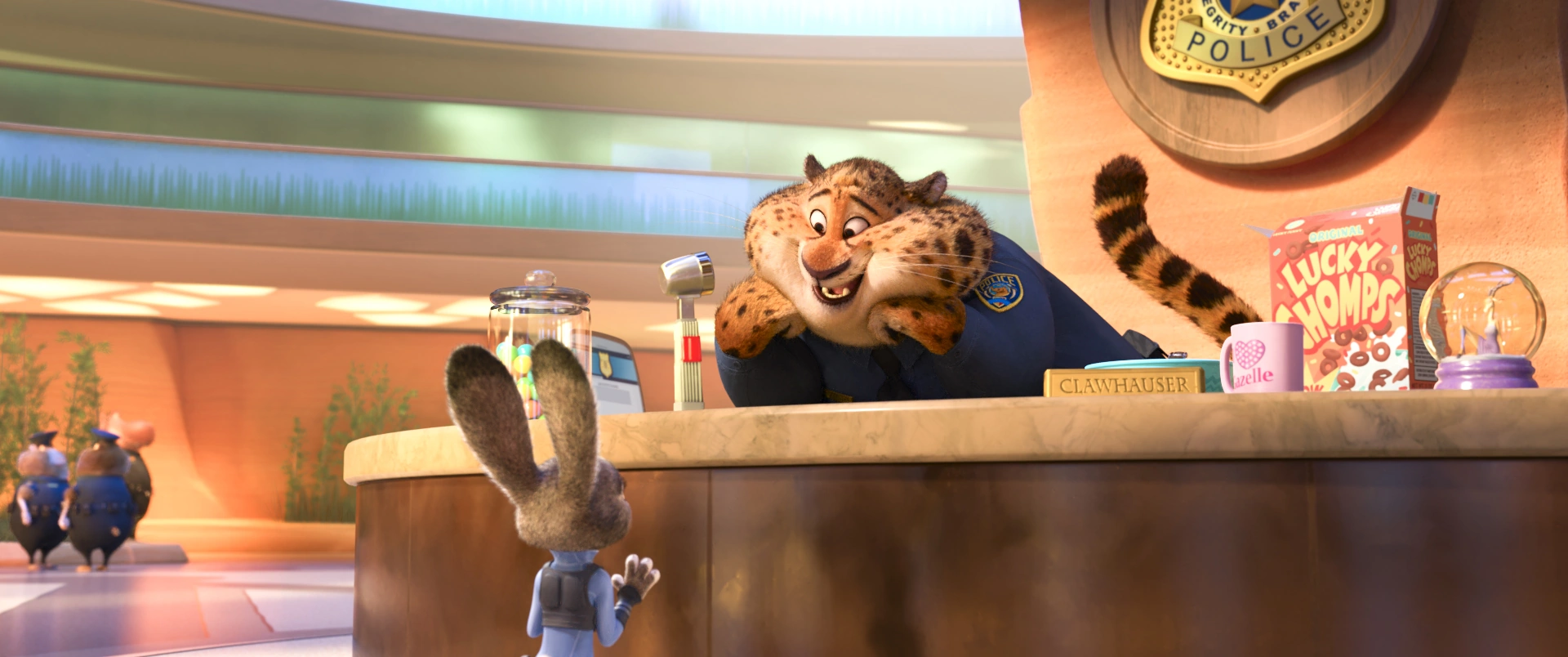Thoughts on David Crewe's "Animal Harm: discrimination and difference in Zootopia"
The article, "Animal Harm: discrimination and difference in Zootopia" by David Crewe writes about the meaning and nuances of the Disney animation Zootopia. Crewe starts off giving a back story as to the previous plot line of the film, which eventually changed due to need for a happier story. He then begins to talk about all of the themes intertwined within the movie, for instance "optimistic equality, systemic inequality, intersectionality, good intentions," etc. Overall, this essay speaks to how Zootopia connects to the real world as well as what messages come out of it's colorful scenery.
There are many claims to Crewe's argument that I appreciate him including. He dotes on the topic of optimism in the film, which is a factor that one cannot ignore while watching Judy Hopps. The difference between Zootopia and other Disney films though, as mentioned by Crewe, is that Judy's optimism becomes dismantled many times throughout the story. It is seen when her parents tell her to go for more realistic dreams (as a child), when Chief Bogo puts her on parking duty, when her apartment is neighbored by rude camels and especially when she begins a relationship with Nick Wilde. As a result, Judy still ends the movie with her peppy optimism, but with the reality that "Real life is messy" and many times that messiness gets in the way of life goals/plans. Many other Disney films, such as Tangled, Frozen, or even Moana, do not have that real life story line about them that is able to relay truthful life messages. Do not think that these movies don't portray important moral values, but many of their values do not come to realizations that the world isn't perfect and happy go-lucky all of the time. Perhaps things happen, as they did to Judy, where you don't go back to normal and you are changed forever. In this way Zootopia created a more realistic message.
I also enjoyed the points Crewe made about discrimination in the film and the comparison it had to contemporary conversations. It has been made a point that Zootopia uses prey vs predator to display their many nuances of racial dynamic. It is seen throughout the film the "racial" or biological related preconceptions that animals have based on their classification of species. For example, when Judy Hopps brings her Fox spray to ward off Nick Wilde, when Clawhauser describes Judy as being cute when in reality only bunnies can say that, or when Judy says that "a bunny could never go savage." All of these examples go to show how prejudice is shown in Zootopia, but the filmmakers wanted it that way for they made Judy Hopps come to the realization that Zootopia was being split between predator and prey for illogical reasons. Much like the real world, there are prejudices made about people of minority races and ethnicities, but the movie reveals that we should not judge one another based on what their biology is or how they look. The entire topic of race is extremely prevalent and extreme in the film Zootopia, but I just touched on a few pieces of the puzzle that Crewe mentioned as well.

Comments
Post a Comment